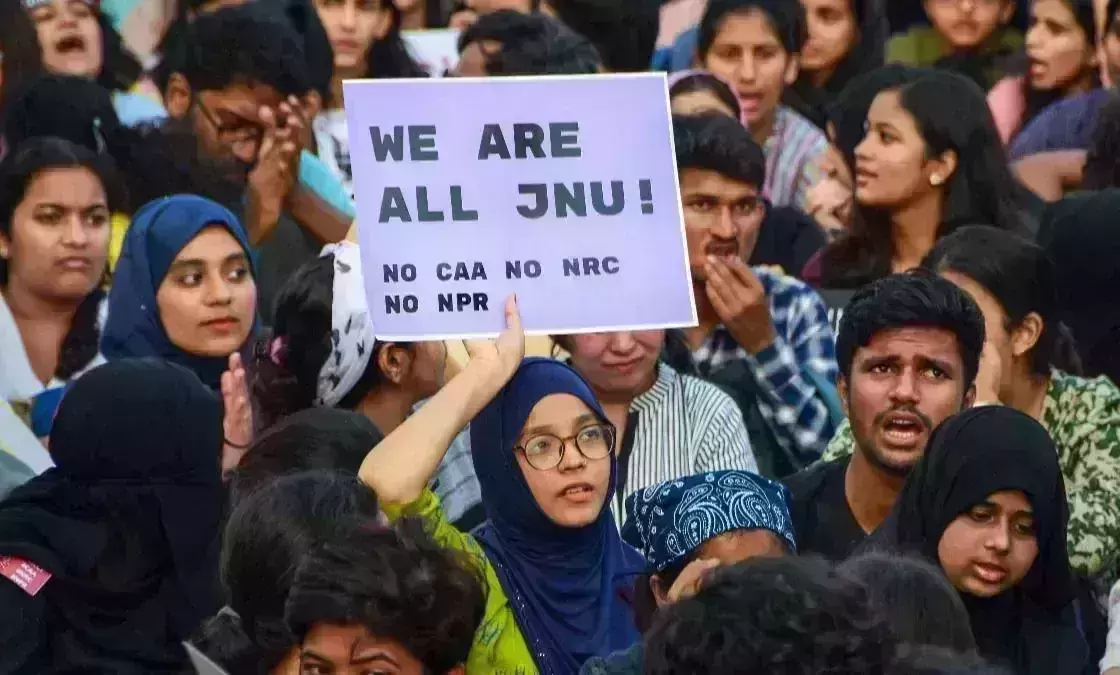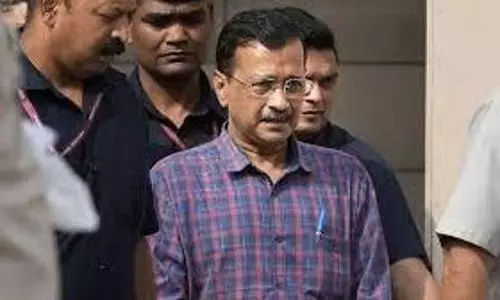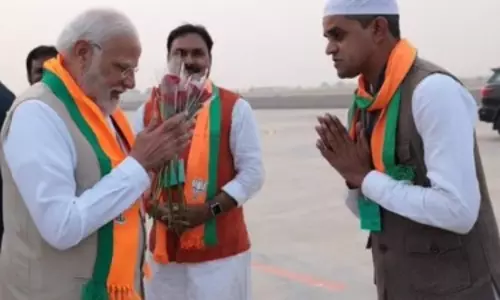

JNU: Death of a public university
text_fieldsJNU then
There was only one way to answer the deceptively simple question "Describe Shakespeare's Fool", in the Jawaharlal Nehru University entrance exam that I took at a centre in Cochin, way back in time. And that was with an honest abandon. The answer to this quintessential JNU question along with those to a couple of other equally typical questions got me into the premier social sciences university of India.
Within its gates, I found the largest concentration of passionate and politically committed intellectuals and mavericks, who came from all across the country. In JNU, teachers and students were highly engaged in social research inquiry and questioned conventions regarding everything under the sun.
As with Shakespeare's Fools, JNU students too had the reputation of constantly raising inconvenient truths to whichever party was in power at the Centre. Due to the university's location in the national capital region, JNU students could easily hold protest marches to Parliament to highlight political issues on which the government had erred. JNU student demonstrations always made headlines.
Today, I write the requiem of the 'erstwhile' public-funded Jawaharlal Nehru University that was conceived through the JNU Act (1966) to not be "just another university". It was to be a research-oriented social sciences centre of excellence "with a difference". The university was established in 1969. One of its prime objectives was to promote in students "an awareness and understanding of the social needs of the country and prepare them for fulfilling such needs."
Social commitment:
JNU was ordained as the only dedicated social sciences research centre in India at a time when regional and national-level science and technology institutes abounded.
Each new student in JNU found his or her own path of interdisciplinary inquiry with the help of wide reading, their field trip experiences and a host of helpful teachers and fellow students. The campus was a greenhouse of hyper-awareness and interpretative freedom on events and phenomena that happened in human history. It's no surprise that a deep political discernment becomes second nature to most JNU students.
The institute's unique admission policy dispensed positive discrimination marks to students hailing from underprivileged regions/backgrounds, most of whom were first-generation learners. In the midst of unravelling new scholarships on societies past and present, nowhere else were the ideals of democracy, secularism and national integration more seamlessly demonstrated as inside JNU campus. Classes, libraries, mess-halls and dhabas were venues for discussing topics that extended past midnight; a time-limited, straitjacketed education was not the norm; legendary professors could be accosted with academic doubts outside class hours. Girl students had no safety concerns inside the campus.
For many research scholars, their field study in underdeveloped, remote areas led them to realise their life's mission – to contribute to the socio-economic development of such regions. Many became involved in people's movements. In JNU, education, research and activism went hand in hand.
JNU students' elections were held without the inflow of money and muscle power from the outside.
Those who went from JNU to take up teaching positions abroad or in Indian universities, or in any other job, had a great influence in radically transforming disciplines and pedagogy in their professional spheres.
Vilification of JNU
However, times have changed. Yesterday, a former PhD scholar from JNU, Umar Khalid, completed one year in jail in the northeast Delhi riots case. UAPA was slapped on him for taking part in the 2020 protests against the anti-constitutional Citizenship Amendment Act that aims to divide the country's citizens based on religion.
Senior advocate Trideep Pais, who appeared in court on behalf of Umar, told the court that 715 FIRs have been registered against him, but there was no cognizable offence committed in any. Doctored videos, planted evidence, incriminating tweets by the BJP IT cell, all amplified by godi media across the nation, have today become the method to incarcerate JNU's activists. Another anti-national act committed by Umar Khalid's is that his PhD thesis is on the Adivasis of Jharkhand, where Adani has huge business interests. The incarceration of Umar Khalid is a good way to study the current climate of the country.
Ever since PM Modi came to power, the groundwork was going on for ushering in the NEP (New Education Policy) to 'brahminise' the country's education system. This was a phenomenon that happened side by side with the vilification, diminution and saffronisation of JNU.
JNU provoked the ire of the current dispensation by its very existence. Soon after the appointment of the compliant Dr Jagdesh Kumar as the Vice-Chancellor of JNU in 2016, a meeting to discuss Afzal Guru (hanged three years prior) happened on the JNU campus. It was just another meeting on campus that absolutely fell in with JNU's culture of debates. However, the incident was seized as an opportunity to unleash a 24X7 godi media blitzkrieg against JNU. The university was dubbed as the habitat of promiscuous lotus-eaters guzzling tax payer's money, and also as the den of the "tukde tukde gang".
The intention was to destroy the JNU culture on campus and make way for self-financing engineering, medical and management schools within the JNU campus.
In today's world of the internet, data economy, artificial intelligence and fake news, the rest of the country could easily be made to betray their trust in the importance of a social sciences university like JNU.
JNU now: Changes brought in by VC Jagdesh Kumar
Regardless of seniority or subject expertise, the VC has appointed chairpersons and deans to various schools in JNU, filling academic positions with Right-leaning/Right-compromised people. Yes-persons are rewarded with double promotions while bright professors of a different ideological persuasion have been left behind. Professors have to now get their syllabi vetted in advance, and no other issue is allowed to be discussed in class. Together with the plan to open new four-year UG courses in the campus, the only public-funded social science and humanities research centre across the globe is being starkly diminished into just another college of learning.
The current JNU has drastically reduced the intake of the number of research scholars. Research scholars have to maintain regular attendance, a move that is alleged: "to kill activism".
Decision-making in the Academic Councils have undergone drastic changes. Important decisions regarding academia, fee hikes, new courses etc are "storm-trooped" through Academic and Executive Councils in haste without holding discussions with the JNUSU (Student's Union) or JNUTA (Teacher's Association).
A statue of Swami Vivekananda, as an international Hindu youth icon, now stands in the Administrative Block opposite the statue of Jawaharlal Nehru. The JNU central library has been renamed Ambedkar Library, with the texts of the 'Father of the Indian Constitution' removed from the stacks. A street on campus has been named after Veer Savarkar.
In JNU, hostel and mess fees are hiked, non-JRF scholarships given to vulnerable students are cancelled. Entrance exam questions that earlier required descriptive answers to display the range of the candidate's creativity and insights have now been reduced to multiple-choice questions prepared by the National Testing Agency. Security guards in JNU are ex-Army jawans, recruited to stop student activism. Dhabas and libraries shut early.
The breakdown of the great university is in line with the problematic thinking that has gone behind the New Education Policy (NEP) brought in by the Modi government. To borrow the words of noted economist Prabhat Patnaik: the NEP is "downright reactionary" as it has no mention of the reservation to the weaker sections of the country's population. The policy, he observed, is one that has "retreated from the goal of providing the foundations for an egalitarian society".
Who, but an authoritarian regime is afraid of egalitarian research and inquiry-based education that is made available to the entire population!
(With inputs from Sebastian Thejas Cherian, Faculty Member, JNU, and another source who wishes to remain anonymous.)
(Leena Mariam Koshy is an independent writer from Kozhikode, Kerala.)

















